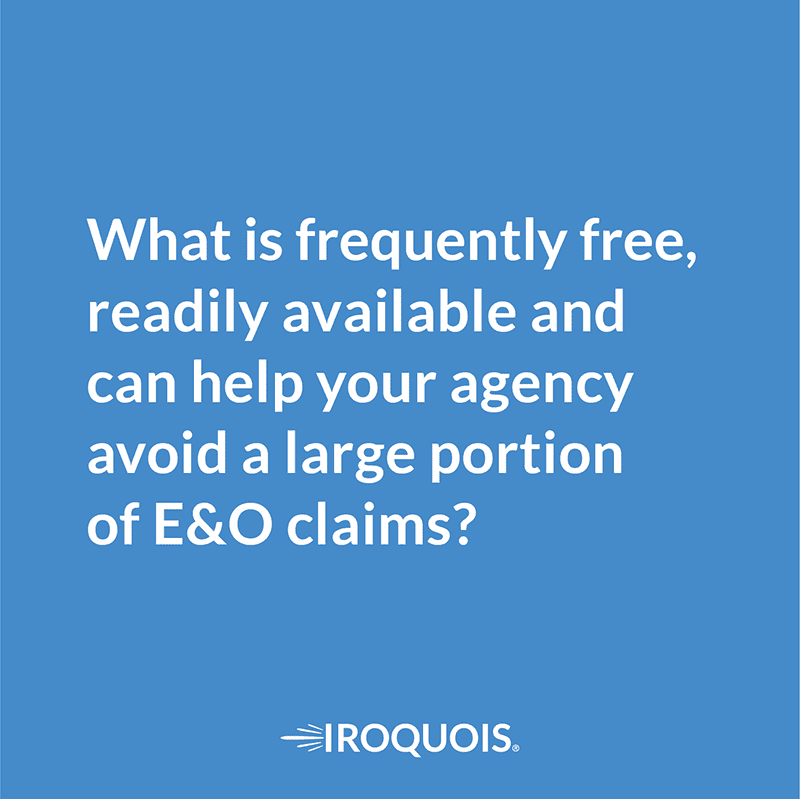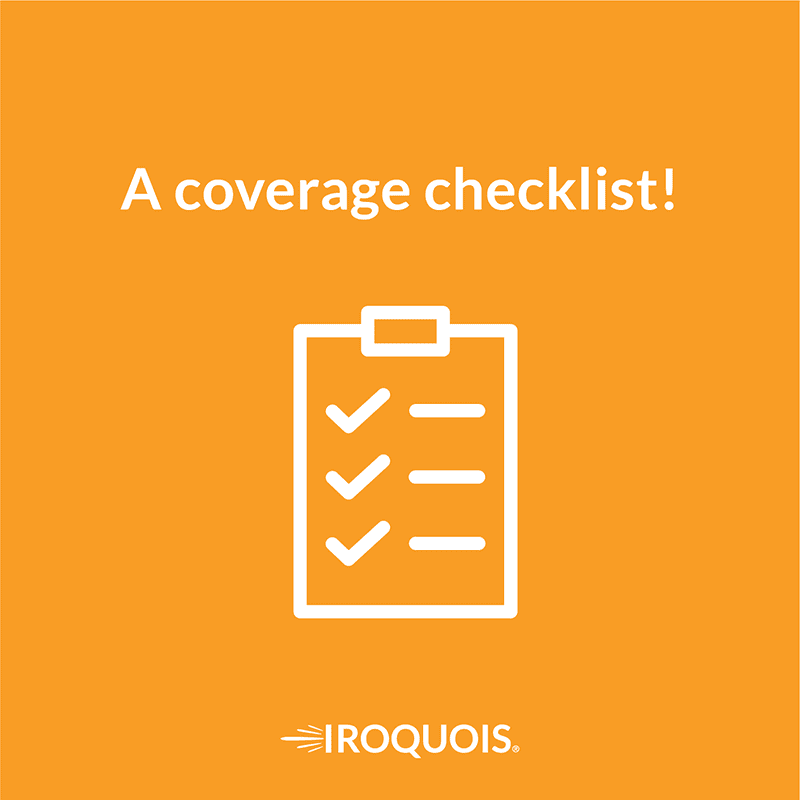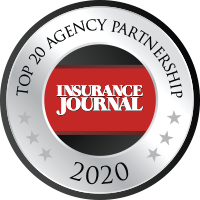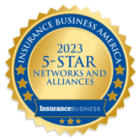Covid-19 is having an unprecedented, and still evolving, impact on agency E&O claims. Chris Burand, E&O author and Certified Business Appraiser, provides some astonishing numbers and suggests some simple, but structured, ways to prevent E&O claims in the future.
https://www.burand-associates.com/forms
https://www.pia.org/IRC/eo-risk/ (Membership required)
https://www.independentagent.com/vu/Agency%20Management/E_O/FacultyChecklists.aspx (Membership required)
Edwin K. Morris (3s):
Welcome to the trusted advisor podcast brought to you by Iroquois group. Iroquois is your trusted advisor in all things insurance. I am Edwin K. Morris. Chris Burand has 30 years of experience in the insurance industry. He is both a certified business appraiser and an approved E&O auditor by multiple E&O carriers. But his reach in E&O does not end there. He is also an approved E&O instructor and expert witness, and also has authored a book of E&O tips. Chris, let’s not beat around the bush. The question on every agency’s mind is I can’t be sued for not providing business interruption relative to COVID-19, can I?
Chris Burand (48s):
Well sure, everybody can be sued for anything, right. And a whole lot of the suits that are at the national level that people may have seen, some of these restaurant suits against carriers in particular. Well, if you get a copy of the actual documents, it lists the agency and the agency is also being sued.
Edwin K. Morris (1m 10s):
How do you step around that?
Chris Burand (1m 12s):
You don’t step around that. If there’s flight time, you fly. As soon as, if you’re a broker that gets sued, you turn that into the E&O carrier ASAP. If you get any indication you’re going to get sued, you notify the E&O carrier right away.
Edwin K. Morris (1m 31s):
We’ve all been hearing so much about BI coverage, but what other lines are agents vulnerable to relative to COVID-19 E&O claims?
Chris Burand (1m 41s):
A few in particular. First, work comp. One of the things that changed with work comp is everybody working from home. And especially if, if an employer is on a borderline, a state border and their employees are now working from home, that happens in another state, they had better offered all state’s coverage. And there’s also an issue regarding whether the home is a safe workplace. You also have an issue as to what some of the state emergency orders that make all COVID-19 claims for certain classes of people, at least for employees, automatically work comp claims.
Chris Burand (2m 22s):
That is potentially massive, you know, exposure for agencies. Another example really important is D&O. And we’re already seeing D&O rates spike. We’re seeing the availability of D&O become very constricted. I think that the potential for E&O around D&O is, is maybe as high as any other line. It’s significant. You have as the country reopens, we have EPL coverage, EPLI insurance, and we’ve got the situation as to whether we offered the right forms with the right coverage, not just right amounts, but the right coverage provisions.
Chris Burand (3m 3s):
And there’s a lot with D&O and EPLI, the forms vary a lot from one company to another company. So it’s essential that the agents are offering the coverage that’s applicable, not leaving things out. Another one that’s maybe overlooked is cyber. The number of cyber attacks has increased by 65% since March 1st. At that level, businesses are being attacked, right and left. And most insureds I would argue, do not have adequate cyber coverage. Yeah. And a lot of agents don’t know what cyber coverage they should be offering.
Chris Burand (3m 44s):
So that’s an especially large vulnerability from a different angle. Those are the ones that really get to me
Edwin K. Morris (3m 51s):
As the threat environment continually changes, how does anyone ever keep up on if they have the right coverage or the volume or the dollar amount,
Chris Burand (4m 1s):
Right. It’s going to be a balance. So the key to it is going to be that you, that the agents sit and work with their clients and actually talk to their clients. They have to talk to their clients. From a perspective of, they also have to know what it is they’re selling. The idea of selling insurance, but not matching it to the client’s needs or understanding what’s in that form, that’s dead. You’re a sitting duck if you do that on a go-forward basis, I really cannot overemphasize that. The other thing to do is to pay attention to some of the better technical podcasts from the legal community.
Chris Burand (4m 42s):
The legal community is publishing some really good information, almost daily, finding some of that stuff and getting through the weeds – kind of hard, but there’s some really good information.
Edwin K. Morris (4m 54s):
And that’s a full-time job, isn’t it?
Chris Burand (4m 58s):
Not really. There’s, how do I say this? Once you find your right connections or find a person that can help you like, like I do my clients, it, it’s pretty simple, irrelevant
Edwin K. Morris (5m 8s):
You’re relegating a lot of this duty on the agent to make sure they are crystal clear on the requirements and anticipation of that client.
Chris Burand (5m 16s):
It is very crystal clear. It comes down to your standards of care. And every agent listening to this should absolutely be reviewing what their standard of care is by the state, where their insured located, as well as by their advertising as well as by their job descriptions. Everyone should stop for a second and do that as soon as possible.
Edwin K. Morris (5m 39s):
Awesome. And it sounds like do that and do that regularly
Chris Burand (5m 44s):
For sure. Absolutely. Everyone absolutely should revisit the standard of care. And furthermore, where the gaps that I am seeing is, is that maybe the principles review their standard of care, but they forget to tell all of their employees what the applicable standard care is
Edwin K. Morris (5m 60s):
A good point. What makes some of those agencies vulnerable, more vulnerable than others, from being sued in respect to COVID-19 claims
Chris Burand (6m 12s):
Most vulnerable aspect is they failed to offer applicable coverages. A lot of agents are just there to make the sale. I hate to be so direct and blunt, but they’re just making the sale and they’re not taking the time to actually learn what the client’s needs are and they’re not offering those coverages. Next part is, is they’re not using coverage checklist. So even when you offer the coverage and a client says, man times are tough, I don’t want to buy it, get the client to sign off. It’s estimated now that 60, 65% of all E&O claims would be avoided if the agent used a coverage checklist with the sign-off.
Edwin K. Morris (6m 53s):
Oh my goodness. That sounds huge.
Chris Burand (6m 56s):
You can eliminate in our world probably 70, 75% of all E&O claims with two steps, sell the client the right coverage. And if they don’t buy it, get them to sign off.
Edwin K. Morris (7m 8s):
Well, you make that sound pretty simple.
Chris Burand (7m 15s):
It is fairly simple. Now the complication is this, is that a lot of people don’t know their coverages, so they don’t know how to use a coverage checklist, but the actual process, if you know what you’re doing, take the time to learn what you’re doing. It is pretty simple.
Edwin K. Morris (7m 31s):
Right, it’s not rocket science. I get that. So where does this checklist come from?
Chris Burand (7m 35s):
So there’s lots of sources for a coverage checklist. If they are a member of the PIA or the Big I, especially the Big I has the virtual university where you can go and get them for free. There are a number of sources that are automated software, and they will provide you a checklist by SIC or any IC code. And they’re updated all the time. It’s a, you do have to pay for those. Some people don’t like to pay for anything, but you do have to pay for those. And they’re, they’re wonderful checklists. Some E&O carriers, not many, but a few will also provide them.
Edwin K. Morris (8m 14s):
Well, it sounds like there’s plenty of sources.
Chris Burand (8m 17s):
There are plenty of sources. There are hundreds of coverage checklists available for use.
Edwin K. Morris (8m 22s):
Let’s go back to the COVID 19 versus E&O related claims. What mainly is different between the two,
Chris Burand (8m 31s):
Between COVID-19 specific E&O claims and regular E&O claims? The standard of care hasn’t changed. Nothing changes about that, but what has changed is the visibility. There is so much desperation and there’s so much money at risk. So last Wednesday, I think it was, a record was set with 120 coordinated class action lawsuits against the insurance industry specific to COVID-19. The visibility and the number of shoots they’re going to come out of this is off the charts. I’ll put it in some numbers for you.
Chris Burand (9m 13s):
In any given year, maybe one out of eight or nine commercial clients will have a claim. And let’s say that the error rate is even 25%. So you’re talking about 25% of what is that about 8%. So the chances of a lawsuit coming about to begin with are small, you know, one or 2% any given year. So that’s why only about one out of seven, one out of eight agencies are stewed any given year. It’s not that much. I mean, it’s a lot, but it’s not really that much.
Chris Burand (9m 54s):
Right now we are looking at almost probably 90% of all commercial businesses having a loss.
Edwin K. Morris (10m 2s):
Wow.
Chris Burand (10m 2s):
And 90% of those 90% are probably going to at least be initially told they likely don’t have the coverage they’re seeking. Then that means, well, why didn’t the agent offer it or discuss it. So that’s where I’m coming from with the visibility. Just pure numbers are pretty, it’s night and day difference now.
Edwin K. Morris (10m 21s):
Is there any other point in time this is comparable to?
Chris Burand (10m 25s):
Not on a national level there isn’t. The closest that you have is probably hurricane Katrina, is maybe Sandy, but not quite the same as super storm sandy. Katrina would be the closest and I was heavily involved in helping agents before and after Katrina hit that area. The difference with the ones that came out well on the other side, oftentimes was the coverage checklist. Agents that used the coverage checklist prior, they had so much more success with suits and not being sued as often.
Edwin K. Morris (11m 2s):
Sound advice. For more sound advice, where can people find you? How do they find out how to get in contact with you?
Chris Burand (11m 13s):
You have my website, Burand-associates.com and Burand insurance education. If they want to learn coverages, we have arguably the best bespoke education program, I think in the industry. It teaches the coverages, coverages one-on-one specific to that agency and especially a business income, which is real complex. It’s hard to learn well, but the focal point of business income is so crucial right now. And there’s two other facts that I’d like to share with the audience about this is, is that on business income, the claims, not the claims that will be paid, but the actual losses to insureds is running somewhere around 300 to $400 million a month.
Chris Burand (11m 59s):
That’s the intensity of the pressure that people are going to, are under to find coverage somewhere somehow. So learning business income in depth right now is essential. And the second part I’d like to point out is agents and brokers have some cover to say the pandemic couldn’t have been predicted and therefore we didn’t do this or that. Fair enough. But when the second wave hits, you can’t use that excuse this time. Yeah. Got to get ahead of that second wave and learn coverages, learn to use checklists, offer the coverages. Best advice I can give you anyone.
Edwin K. Morris (12m 38s):
I think that advice is going to resonate with a lot of people.
Chris Burand (12m 41s):
Good.
Edwin K. Morris (12m 41s):
Thank you very much for being here today.
Chris Burand (12m 44s):
You’re welcome. Thank you for having me.
Edwin K. Morris (12m 47s):
Thanks for listening to this edition of the trusted advisor podcast brought to you by Iroquois group. Iroquois, your trusted advisor for all things insurance, and remember get out of the office and sell. I am Edwin K. Morris, and I invite you to join me for the next edition of the trusted advisor podcast.




